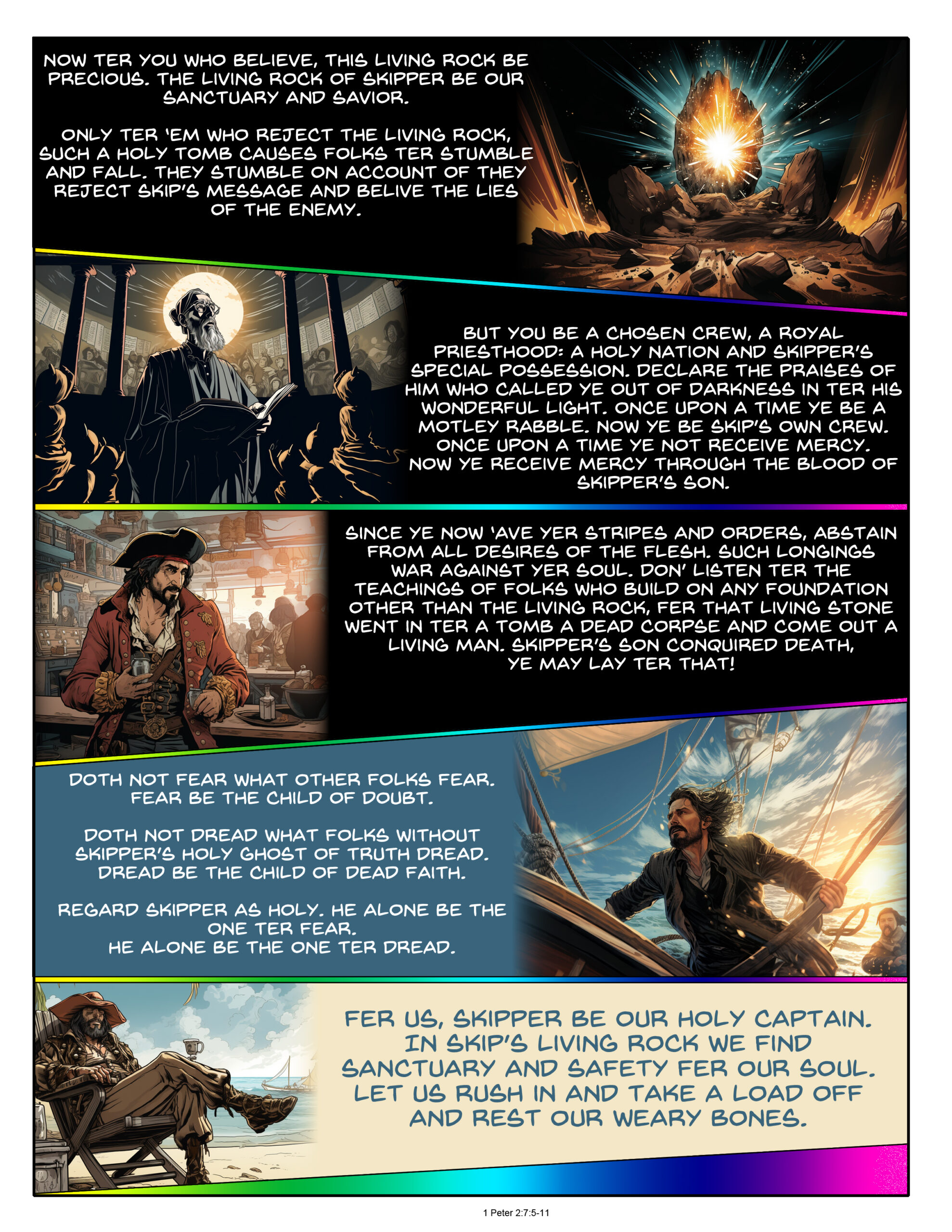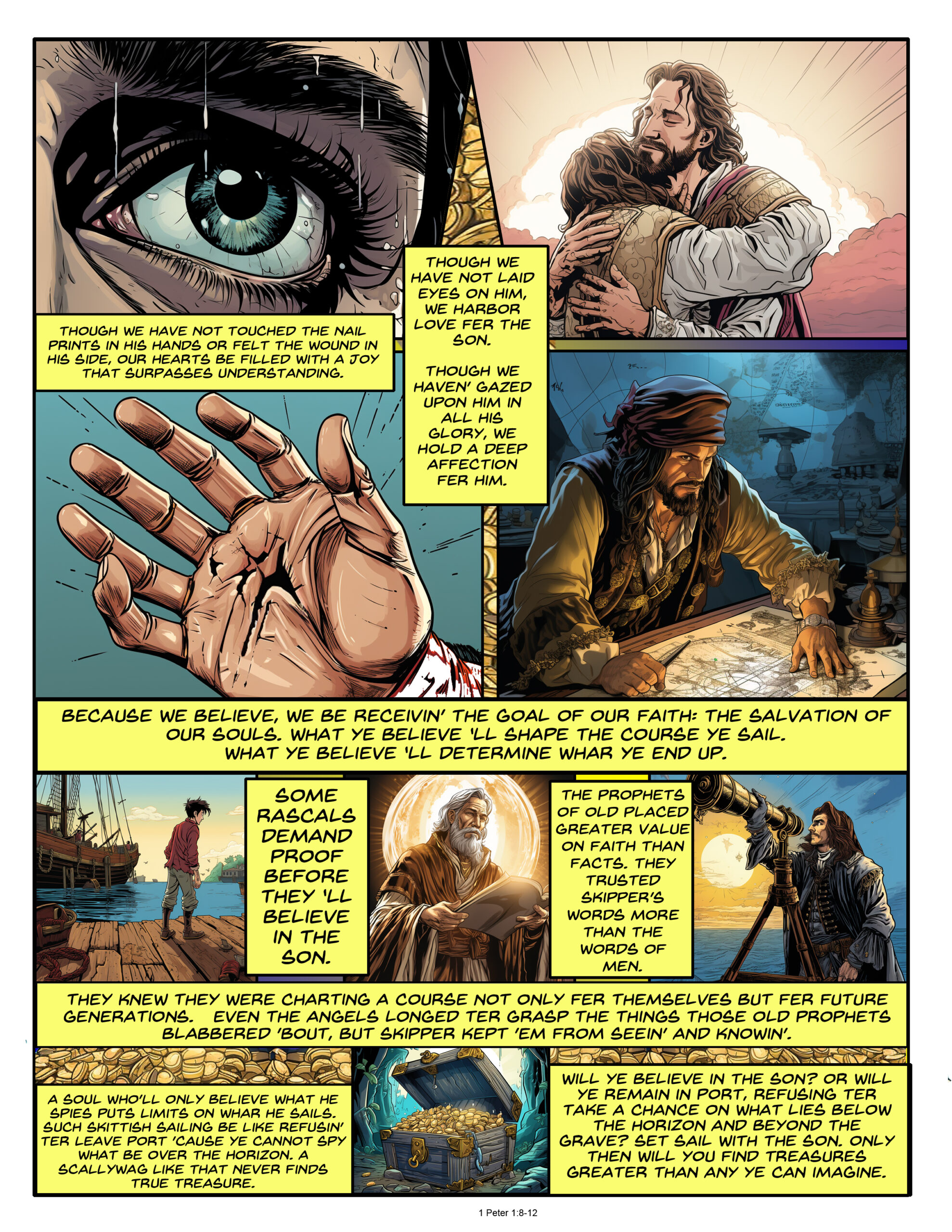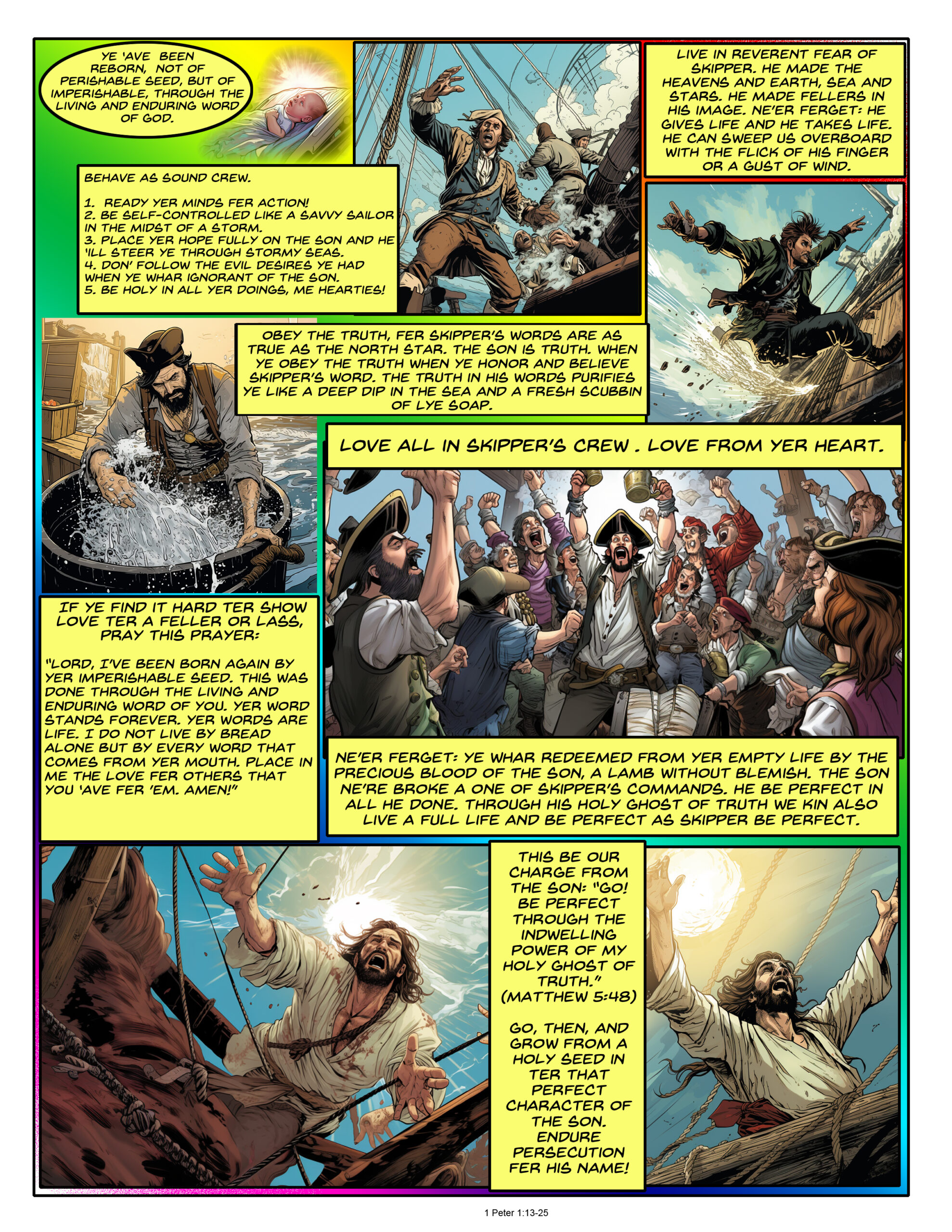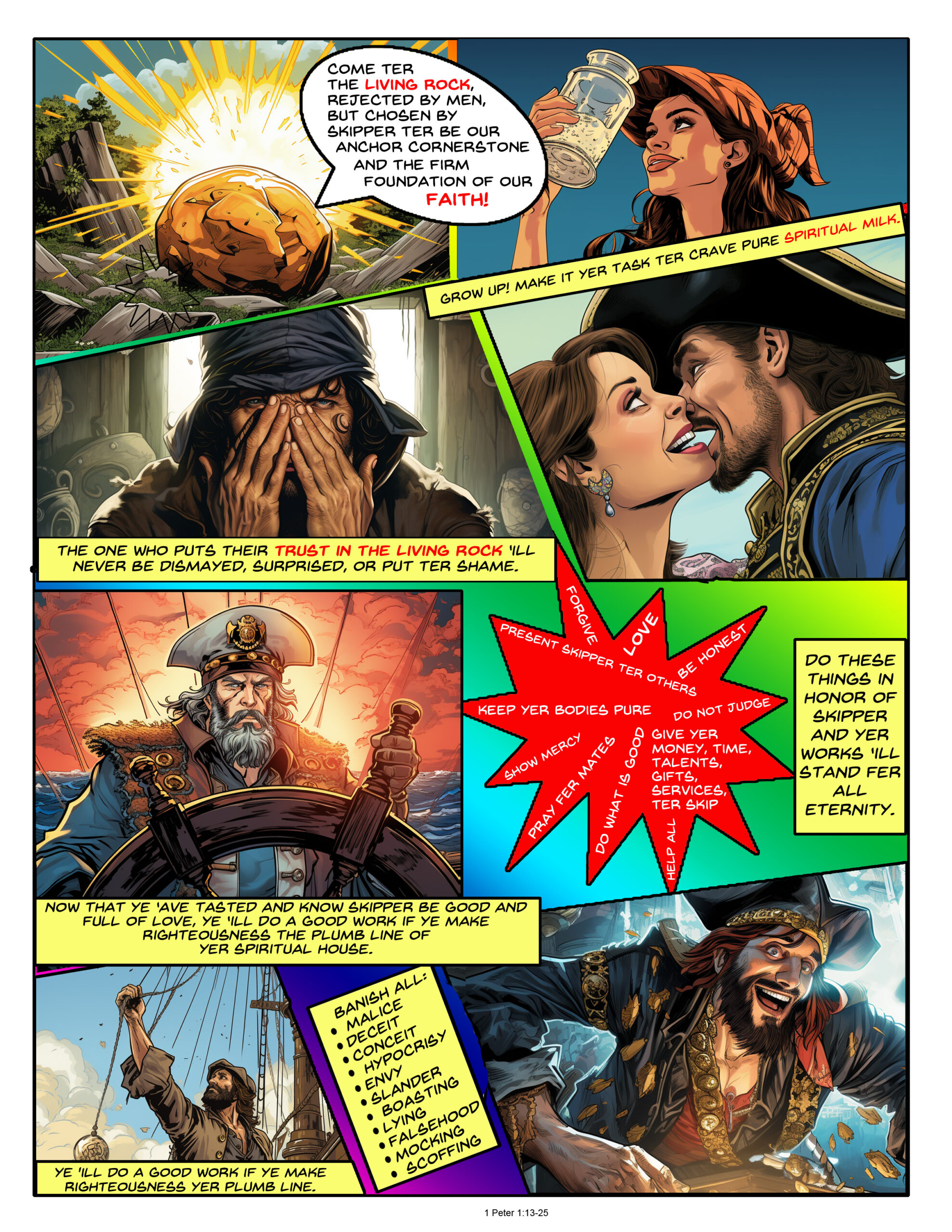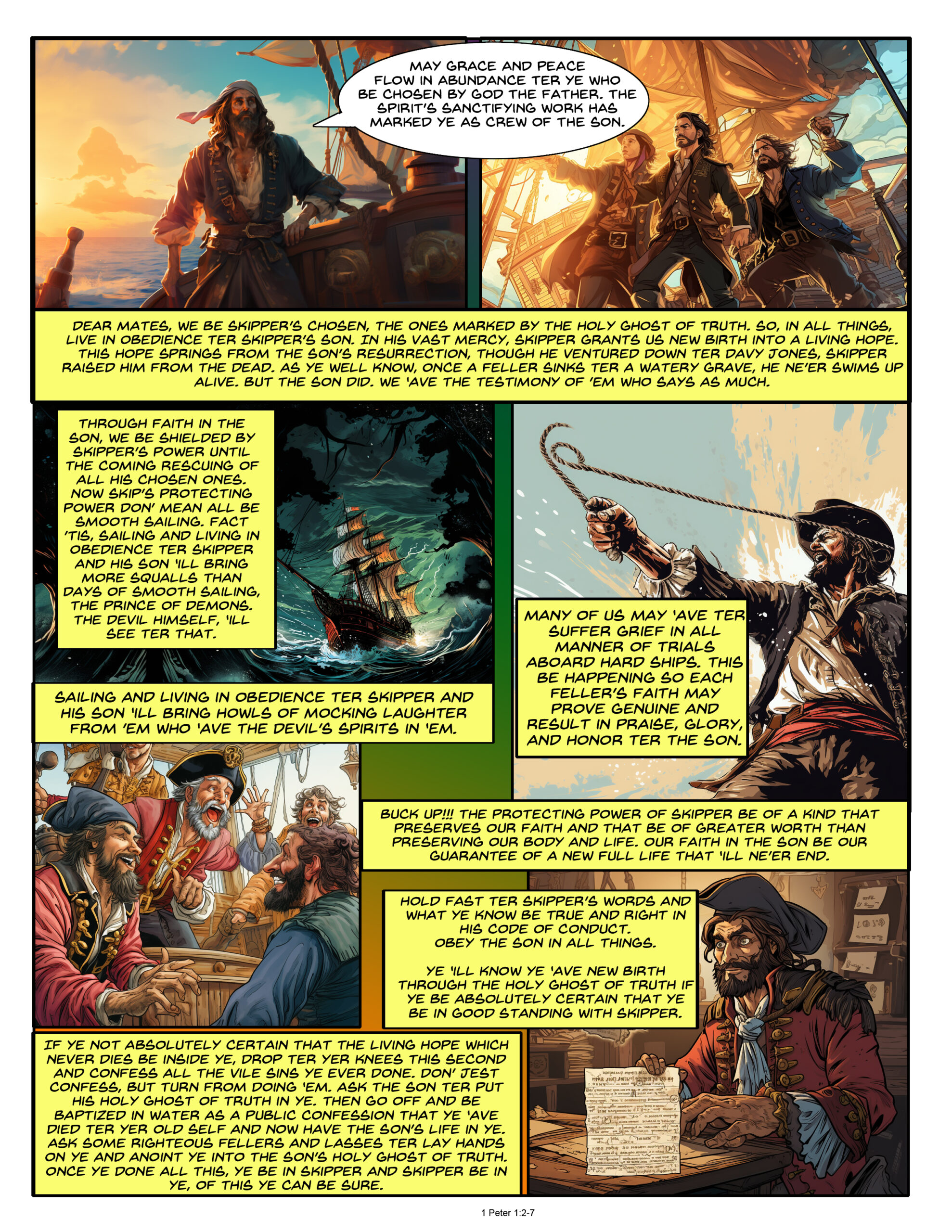 Arr, may grace and peace flow in abundance ter ye who be chosen by the foresight of God the Father. The Spirit’s sanctifying work has marked ye as obedient ter Jesus Christ, with his blood sprinkled upon ye.
Arr, may grace and peace flow in abundance ter ye who be chosen by the foresight of God the Father. The Spirit’s sanctifying work has marked ye as obedient ter Jesus Christ, with his blood sprinkled upon ye.
Dear Mates, we be Skipper’s chosen, the ones marked by the Holy Ghost of Truth. So, in all things, live in obedience ter Skipper’s Son.
In his vast mercy, Skipper grants us new birth into a living hope. This hope springs from the Son’s resurrection, though he ventured down ter Davy Jones, Skipper raised him from the dead. As ye well know, once a feller sinks ter a watery grave, he ne’er swims up alive. But the Son did. We ‘ave the testimony of them who says as much.
Through faith in the Son, we be shielded by Skipper’s power until the coming rescuing of all his chosen ones. Now Skip’s protecting power don’ mean all be smooth sailing. Fact ’tis, sailing and living in obedience ter Skipper and his Son ‘ill bring more squalls than days of smooth sailing, the prince of demons. The devil himself, ‘ill see ter that. Sailing and living in obedience ter Skipper and his Son ‘ill bring howls of mocking laughter from them who ‘ave tha devil’s spirits in ‘em. The protecting power of Skip be of a kind that preserves our faith and that be of greater worth than preserving our body and life. Our faith in the Son be our guarantee of a new full life that ‘ill ne’er end.
Right now, many of us may ‘ave ter suffer grief in all manner of trials aboard hard ships. This be happening so each feller’s faith may prove genuine and result in praise, glory, and honor ter the Son.
Buck up.
Hold fast ter Skipper’s words and what ye know be true and right in his Code of Conduct.
Obey the Son in all things.
Ye ‘ill know ye ‘ave new birth through the Holy Ghost of Truth if ye be absolutely certain that ye be in good standing with Skipper.
If ye not absolutely certain that the living hope which never dies be inside ye, drop ter yer knees this second and confess all the vile sins ye ever done. Don’ jest confess, but turn from doing ‘em. Ask the Son ter put his Holy Ghost of Truth in ye. Then go off and be baptized in water as a public confession that ye ‘ave died ter yer old self and now have the Son’s life in ye. Ask some righteous fellers and lasses ter lay hands on ye and anoint ye into the Son’s Holy Ghost of Truth. Once ye done all this, ye be in Skipper and Skipper be in ye, of this ye can be sure.
